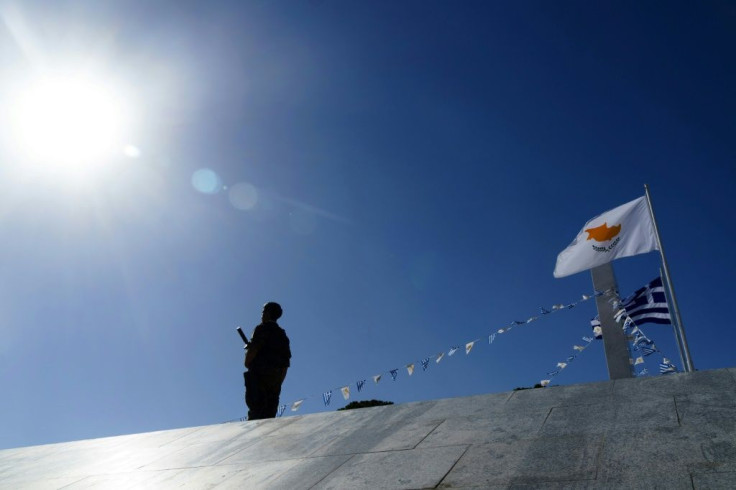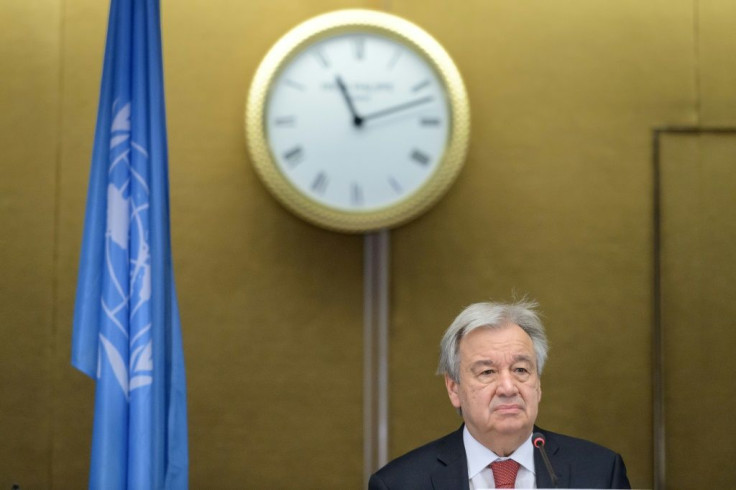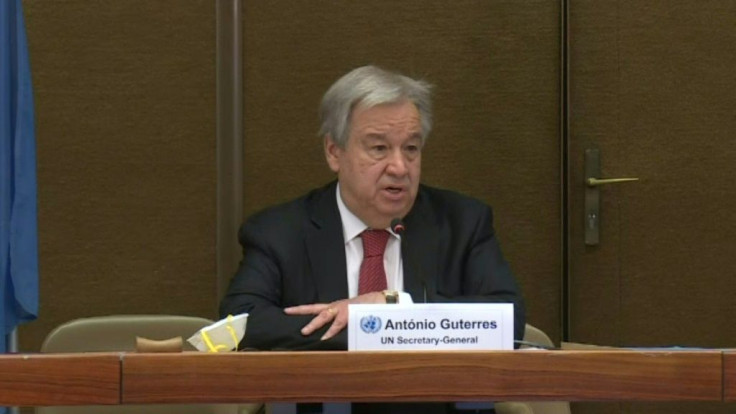No Breakthrough In Cyprus Settlement Talks At UN
Talks with rival Cypriot leaders failed to find common ground that could pave the way towards resolving the decades-old division of Cyprus, the UN chief concluded Thursday.
The United Nations is trying to mediate a deal for the eastern Mediterranean island, nearly six decades since it first deployed peacekeepers there.
UN Secretary-General Antonio Guterres travelled from New York to Geneva to oversee the three days of informal talks, but said they had not managed to overcome the stark differences between the Greek and Turkish Cypriot positions.
"The truth is that in the end of our efforts, we have not yet found enough common ground to allow for the resumption of formal negotiations in relation to the settlement of the Cyprus problem," Guterres told a press conference.
"But I do not give up," he said.

"My agenda is strictly to fight for the security and well-being of the Cypriots -- of the Greek Cypriots and the Turkish Cypriots -- that deserve to live in peace and prosperity together."
The talks were attended by the Greek Cypriot leader Nicos Anastasiades, the Turkish Cypriot leader Ersin Tatar, and the foreign ministers of Greece, Turkey and Britain -- the three guarantors of the island's 1960 independence -- plus Guterres.
The Greek Cypriots wanted to see a bizonal, bi-communal federation with political equality, while the Turkish Cypriots want a solution based on two states cooperating with each other.
"This was not an easy meeting," Guterres concluded.

He said the two Cypriot parties, the three guarantors and the UN would meet again within two to three months, "with the objective to move in the direction of reaching common ground to allow for formal negotiations to start".
"To square the circle is an impossibility in geometry, but it is very common in politics," he said.
"We are determined to do everything we can... to reach positive results."
Cyprus has been divided since 1974, when Turkey occupied the northern third in response to a coup orchestrated by an Athens-backed junta seeking to annex the island to Greece.
The Turkish-occupied zone later declared independence, but remains heavily dependent on Ankara.
A UN-controlled buffer zone separates the breakaway state from areas controlled by EU member the Republic of Cyprus.

According to Greek Cypriot authorities, the conflict has cost some 3,000 lives, left 1,400 people missing and displaced thousands from their homes.
Negotiations for a solution have repeatedly failed, with the last round stalling in 2017.
The mandate given to Guterres by the UN Security Council is based on finding a federal solution for a reunited Cyprus.
Turkish Cypriot leader Tatar said the talks would make "no sense" without recognising two independent states.
"There is no sense in sitting at the negotiations table under the old conditions and without the recognition of our equal sovereign status," Tatar told a press conference following the talks.
Tatar said Turkish Cypriots would "absolutely" not abandon their position.
Turkish Foreign Minister Mevlut Cavusoglu said Ankara "would not make concessions" on the "independence, sovereignty and equality" of northern Cyprus.
"There must be a new negotiations process between two states rather than two communities," he said, accusing the Greek Cypriot side of failing to bring anything new to the table.
Anastasiades said neither the UN nor the European Union could accept the Turkish side's demands for a two-state solution.
He said there was "successful management on our part, so the goals set by Turkey are not achieved".
He said the Greek Cypriot side would continue to work to find a solution to reunite Cyprus based on a bi-zonal federation.
British Foreign Secretary Dominic Raab welcomed the commitment to future talks.
"The UK will continue to work with all parties to seek a fair and lasting settlement," he wrote on Twitter.
Obstacles to the process include rising tensions in the eastern Mediterranean Sea over conflicting claims to offshore oil and gas involving Cyprus, Greece and Turkey.
© Copyright AFP {{Year}}. All rights reserved.





















